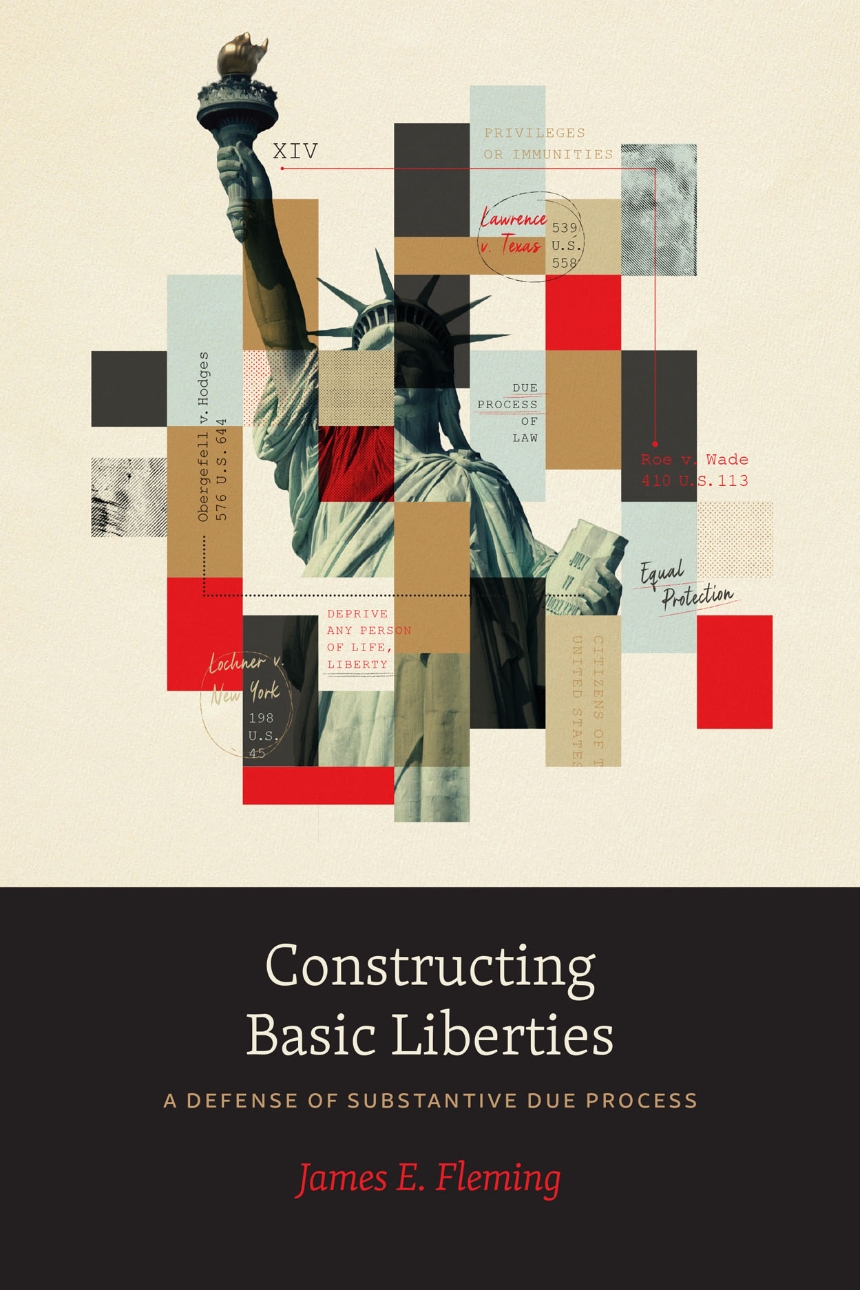Constructing Basic Liberties
A Defense of Substantive Due Process
9780226821405
9780226821399
9780226821412
9780226833583
Constructing Basic Liberties
A Defense of Substantive Due Process
A strong and lively defense of substantive due process.
From reproductive rights to marriage for same-sex couples, many of our basic liberties owe their protection to landmark Supreme Court decisions that have hinged on the doctrine of substantive due process. This doctrine is controversial—a battleground for opposing views around the relationship between law and morality in circumstances of moral pluralism—and is deeply vulnerable today.
Against recurring charges that the practice of substantive due process is dangerously indeterminate and irredeemably undemocratic, Constructing Basic Liberties reveals the underlying coherence and structure of substantive due process and defends it as integral to our constitutional democracy. Reviewing the development of the doctrine over the last half-century, James E. Fleming rebuts popular arguments against substantive due process and shows that the Supreme Court has constructed basic liberties through common law constitutional interpretation: reasoning by analogy from one case to the next and making complex normative judgments about what basic liberties are significant for personal self-government.
Elaborating key distinctions and tools for interpretation, Fleming makes a powerful case that substantive due process is a worthy practice that is based on the best understanding of our constitutional commitments to protecting ordered liberty and securing the status and benefits of equal citizenship for all.
From reproductive rights to marriage for same-sex couples, many of our basic liberties owe their protection to landmark Supreme Court decisions that have hinged on the doctrine of substantive due process. This doctrine is controversial—a battleground for opposing views around the relationship between law and morality in circumstances of moral pluralism—and is deeply vulnerable today.
Against recurring charges that the practice of substantive due process is dangerously indeterminate and irredeemably undemocratic, Constructing Basic Liberties reveals the underlying coherence and structure of substantive due process and defends it as integral to our constitutional democracy. Reviewing the development of the doctrine over the last half-century, James E. Fleming rebuts popular arguments against substantive due process and shows that the Supreme Court has constructed basic liberties through common law constitutional interpretation: reasoning by analogy from one case to the next and making complex normative judgments about what basic liberties are significant for personal self-government.
Elaborating key distinctions and tools for interpretation, Fleming makes a powerful case that substantive due process is a worthy practice that is based on the best understanding of our constitutional commitments to protecting ordered liberty and securing the status and benefits of equal citizenship for all.
See a collection of posts from a recent symposium on the book at Jack M. Balkin’s Balkinization Blog.
280 pages | 1 line drawings | 6 x 9
Law and Legal Studies: Legal Thought, The Constitution and the Courts
Reviews
Table of Contents
1. A Second Death of Substantive Due Process?
Part I: Our Practice of Substantive Due Process
2. The Coherence and Structure of Substantive Due Process
3. The Rational Continuum of Ordered Liberty
Part II: Substantive Due Process Does Not “Effectively Decree the End of All Morals Legislation”
4. Is Substantive Due Process on a Slippery Slope to “the End of All Morals Legislation”?
5. Is Moral Disapproval Enough to Justify Traditional Morals Legislation?
Part III: Substantive Due Process Does Not Enact a Utopian Economic or Moral Theory
6. The Ghost of Lochner v. New York
7. Does Substantive Due Process Enact Mill’s On Liberty?
Part IV: Conflicts between Liberty and Equality
8. The Grounds for Protecting Basic Liberties: Liberty Together with Equality
9. Accommodating Gay and Lesbian Rights and Religious Liberty
Part V: The Future
10. The Future of Substantive Due Process
Acknowledgments
Notes
Index
Part I: Our Practice of Substantive Due Process
2. The Coherence and Structure of Substantive Due Process
3. The Rational Continuum of Ordered Liberty
Part II: Substantive Due Process Does Not “Effectively Decree the End of All Morals Legislation”
4. Is Substantive Due Process on a Slippery Slope to “the End of All Morals Legislation”?
5. Is Moral Disapproval Enough to Justify Traditional Morals Legislation?
Part III: Substantive Due Process Does Not Enact a Utopian Economic or Moral Theory
6. The Ghost of Lochner v. New York
7. Does Substantive Due Process Enact Mill’s On Liberty?
Part IV: Conflicts between Liberty and Equality
8. The Grounds for Protecting Basic Liberties: Liberty Together with Equality
9. Accommodating Gay and Lesbian Rights and Religious Liberty
Part V: The Future
10. The Future of Substantive Due Process
Acknowledgments
Notes
Index
